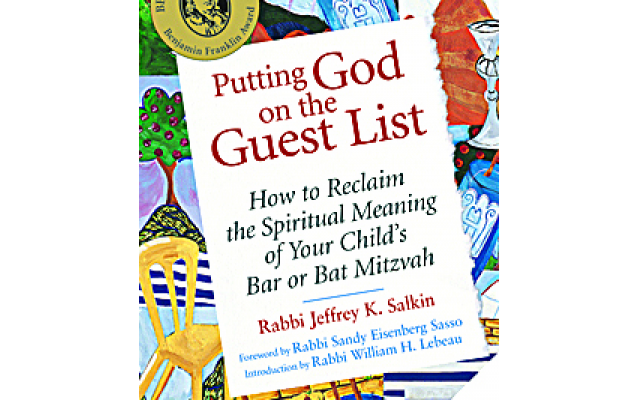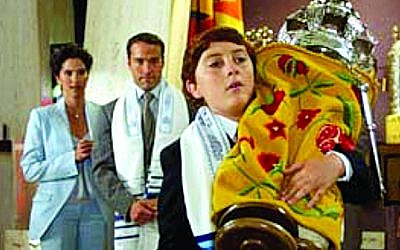Lavish B’nai Mitzvah Cost More Than Money
Some feel the bar mitzvah party planning process is out of control and getting worse.

In the Hollywood film, “Keeping Up with the Steins,” one affluent Jewish family from Los Angeles creates its bar mitzvah celebration on a cruise liner. The high point of the party afterwards for the young bar mitzvah is to sail into the ship’s ballroom on a replica of the Titanic, a ship that was, ironically, at the center of one of the most dramatic disasters in history.
It is perhaps an appropriate metaphor for where the increasingly lavish and competitive world of professionally planned bar and bat mitzvah celebrations is taking the Jewish community —- a place where money is sometimes no object.
In 2005, for example, British billionaire Philip Green flew 200 guests to the South of France for his son’s bar mitzvah weekend and imported Beyoncé and Italian star Andrea Bocelli to entertain. The price tag for the event was said to be a cool $7.5 million.
The same year, another wealthy Wall Street operator, David Brooks, spent an amazing $10 million dollars on his daughter’s celebration with performances by Aerosmith, 50 Cent, Tom Petty, Don Henley and Kenny G. Each one of the guests received a gift bag worth over $1,000.
In “Keeping Up with the Steins,” the race to produce ever more lavish weekend celebrations like the cruise ship extravaganza, ends with another young bar mitzvah boy putting his foot down and opting for a simple backyard celebration.
It proves to be more meaningful than the lavishly themed party his parents had originally designed. But that sort of serious change, least of all motivated by the central figure of the bar mitzvah event, is a rarity.
Rabbi Jeffrey Salkin, a former Atlanta community educator and congregational rabbi now in Florida, has been a critical observer of all the ups and downs of the modern b’nai mitzvah parties. He described them as being the product of a thriving, but spiritually challenged industry.
“We are witnessing the radical separation of bar mitzvah and bat mitzvah from Judaism and the Jewish community. So many people believe they can celebrate their children’s ritual outside the circle of Jewish communal life and synagogue life.”
In his perennial, award winning best-seller, “Putting God on the Guest List,” Salkin maintained that the key to better family celebrations is for families, as a unit, to become more spiritually engaged in the bar or bat mitzvah they are planning.

“Parents need to own their own values,” he emphasized. “They need to be able to say not only what can we afford, but what do we believe. … What Jewish values do we want our child to absorb as part of his or her maturation process?”
Salkin’s concern is echoed by the Union of Reform Judaism.
Several years ago, the movement launched what it describes as its “b’nai mitzvah revolution,” which seeks, among other practices, to foster closer ties with families so each member is more engaged in Jewish learning and practice.
One of the stated goals of the program is “to support children and their families by focusing on the social, emotional and spiritual changes and milestones that accompany adolescence.”
A recently published book, “The Relational Judaism Handbook” is by a trio of liberal rabbis, including Rabbi Lydia Medwin, director of congregational engagement and outreach at The Temple in Atlanta. It seeks to encourage what Medwin describes as a richer connection at all levels of the Jewish community.
“We wrote this book,” she points out, “so you, too, could be inspired to work toward a Jewish community centered on deepened relationships that make life more meaningful.”
But infusing the b’nai mitzvah celebration with greater spirituality is seen by many as an uphill battle. Often the religious ceremony and the fun-filled weekend that follows, spells the end of the spiritual development process for many young people.
Often there is too much competition with school-based extracurricular activities for temples and synagogues to retain young teens and even their family in the religious life of the community. Salkin, who lectures frequently around the country, has witnessed the effects of this fierce competition.
“The plague of post-b’nai mitzvah drop out has continued unabated,” he said. “In some communities, it is close to 100 percent.”
Despite all that organized Judaism is or is not doing, Salkin is sure where the ultimate responsibility lies. “Ninety percent of the blame is with the parents,” he said.
“Many parents, unfortunately, take the path of least resistence. They replicate the ambivalence and indifference that they experienced when they were kids.”



comments